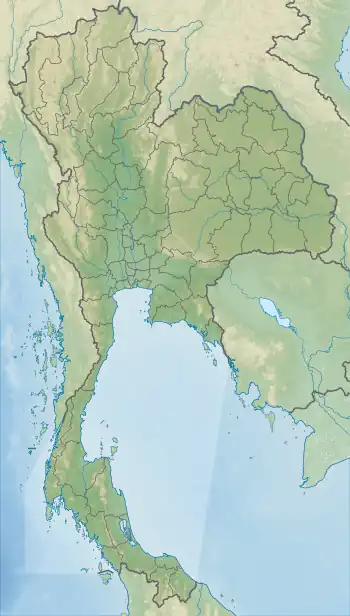| Doi Pui | |
|---|---|
 Doi Pui Location in Thailand | |
| Highest point | |
| Elevation | 1,685 m (5,528 ft) |
| Coordinates | 18°49′54″N 98°53′17″E / 18.83161°N 98.888°E |
| Geography | |
| Location | Chiang Mai Province (Thailand) |
| Parent range | Shan Hills |
| Geology | |
| Mountain type | granite |

Doi Pui (Thai: ดอยปุย), is a mountain ("doi") west of Chiang Mai, Thailand. It is 1,685 metres (5,528 ft) in elevation and is one of the twin peaks of a granite mountain. The other peak is known as Doi Suthep and is slightly lower at 1,676 metres (5,499 ft), where the archaeological site of San Ku (สันกู่) temple, a Buddhist temple dating to approximately 800 years old, is located. The peak is situated in a protected area of Doi Suthep–Pui National Park just to the west of Ban Khun Chang Khian, a White Hmong village located 1,350 metres (4,430 ft) above sea level that was founded in 1955.[1]
History
In 1957, the original evergreen forest was replaced with Cupressus torulosa and Pinus kesiya trees.[1]
Access
From the south, there are trails going up to the summit from a campground. From the east, trails lead to the summit from the Hmong village of Khun Chang Khian.
References
- 1 2 Maxwell, J. F.; Elliott, Stephen (2001). Vegetation and Vascular Flora of Doi Sutep-Pui National Park, Northern Thailand (PDF). Bangkok: The Biodiversity Research and Training Program (BRT).